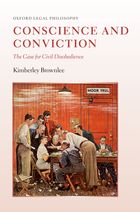Warwick Law School News
Warwick Law School News
The latest updates from our department
Kimberley Brownlee wins Early-Career Fellowship
The Early-Career Fellowship from the Independent Social Research Foundation (worth £48,000) provides funds for 12 months to enable a researcher to do interdisciplinary work that takes new approaches and suggests new solutions to real world social problems. Kim's project will focus on the ethics of sociability, the evils of social deprivation, and the merits of social human rights. In particular, it will look at the human rights implications of socially privative environments such as long-term solitary confinement in prison.
To find out more click here: http://www.isrf.org/grant-competitions/
Kimberley Brownlee awarded a £70,000 Philip Leverhulme Prize
Kimberley Brownlee
Kimberley was awarded a £37,000 Philip Leverhulme Prize. These prizes are designed to recognise and facilitate the work of outstanding young research scholars, who are making original and significant contributions to knowledge in their field with an international impact, and whose greatest achievements are expected to be still to come.
Kimberley Brownlee's research during her fellowship will focus on social human rights, and in particular the idea of a human right against social deprivation. The term ‘social deprivation’ refers to a persisting lack of minimally adequate opportunities for decent human contact and social inclusion. Social deprivation is a common experience in arenas of institutional segregation such as long-term medical quarantine and solitary confinement. It is also the most extreme variant of a more general, pervasive phenomenon of social isolation that includes people, many of whom are elderly or disabled, who are chronically, acutely lonely and unable to remedy their situation. This kind of deprivation is an important concern, particularly in western societies, given the individualistic bent of western culture, aging populations, and the ongoing use of isolating procedures in medicine, immigration, and criminal justice.
New Book: Kimberley Brownlee "Conscience and Conviction: The Case for Civil Disobedience" (Oxford Legal Philosophy)

The book shows that civil disobedience is generally more defensible than private conscientious objection.
Part I explores the morality of conviction and conscience. Each of these concepts informs a distinct argument for civil disobedience. The conviction argument begins with the communicative principle of conscientiousness (CPC). According to the CPC, having a conscientious moral conviction means not just acting consistently with our beliefs and judging ourselves and others by a common moral standard. It also means not seeking to evade the consequences of our beliefs and being willing to communicate them to others. The conviction argument shows that, as a constrained, communicative practice, civil disobedience has a better claim than private objection does to the protections that liberal societies give to conscientious dissent. This view reverses the standard liberal picture which sees private 'conscientious' objection as a modest act of personal belief and civil disobedience as a strategic, undemocratic act whose costs are only sometimes worth bearing.
The conscience argument is narrower and shows that genuinely morally responsive civil disobedience honours the best of our moral responsibilities and is protected by a duty-based moral right of conscience.
Part II translates the conviction argument and conscience argument into two legal defences. The first is a demands-of-conviction defence. The second is a necessity defence. Both of these defences apply more readily to civil disobedience than to private disobedience. Part II also examines lawful punishment, showing that, even when punishment is justifiable, civil disobedients have a moral right not to be punished.
Oxford Legal Philosophy publishes the best new work in philosophically-oriented legal theory. It commissions and solicits monographs in all branches of the subject, including works on philosophical issues in all areas of public and private law, and in the national, transnational, and international realms; studies of the nature of law, legal institutions, and legal reasoning; treatments of problems in political morality as they bear on law; and explorations in the nature and development of legal philosophy itself. The series represents diverse traditions of thought but always with an emphasis on rigour and originality. It sets the standard in contemporary jurisprudence.
New Book: Victor Tadros 'The Ends of Harm: The Moral Foundations of Criminal Law' (OUP, 2011)
Victor Tadros 'The Ends of Harm: The Moral Foundations of Criminal Law' (OUP, 2011)
Every modern democratic state imprisons thousands of offenders every year, depriving them of their liberty, causing them a great deal of psychological and sometimes physical harm. Relationships are destroyed, jobs are lost, the risk of the offender being harmed by other offenders is increased and all at great expense to the state. How can this brutal and costly enterprise be justified? Traditionally, philosophers answering this question have argued either that the punishment of wrongdoers is a good in itself (retributivism), or that it is a regrettable means to a valuable end, such as the deterrence of future wrongdoing, and thus justifiable on consequentialist grounds. This book offers a critical examination of those theories and advances a new argument for punishment's justification, calling it the 'duty view'. On this view, the permission to punish offenders is grounded in the duties that they incur in virtue of their wrongdoing. The most important duties that ground the justification of punishment are the duty to recognize that the offender has done wrong and the duty to protect others against wrongdoing. In the light of these duties the state has a permission to punish offenders to ensure that they recognize that what they have done is wrong, but also to protect others from crime. In contrast to other justifications of punishment grounded in deterrence, the duty view is developed in the light of a non-consequentialist moral theory: a theory which endorses constraints on the pursuit of the good. It is shown that it is normally wrong to harm a person as a means to pursue a greater good. However, there are exceptions to this principle in cases where the person harmed has an enforceable duty to pursue the good. The implications of this idea are explored both in the context of self-defence, and then in the context of punishment. Through the systematic exploration of the relationship between self-defence and punishment, the book makes significant progress in defending a plausible set of non-consequentialist moral principles that justify the punishment of wrongdoers, and marks a significant contribution to the philosophical literature on punishment.
Professor Alan Norrie elected a Fellow of the British Academy.
Alan Norrie was one of only 38 academics to be elected a Fellow of the British Academy at its Annual General Meeting on 21 July. As a British Academy Fellow, Alan joins nearly 900 distinguished scholars who take a lead in representing the humanities and social sciences, facilitating international collaboration, providing an independent and authoritative source of advice, and contributing to public policy and debate.
http://www.britac.ac.uk/fellowship/index.cfm
Alan Norrie's latest book Dialectic and Difference: Dialectical Critical Realism and the Grounds of Justice is jointly awarded the Cheryl Frank Memorial Prize.
Alan Norrie's Dialectic and Difference: Dialectical Critical Realism and the Grounds of Justice (Routledge, 2010) was jointly awarded the Cheryl Frank Memorial Prize for 2010. The prize is awarded for the year's best and/or most innovative new writing in or about the tradition of critical realism.
The Committee state that Dialectic and Difference expounds and develops dialectical critical realism and brilliantly demonstrates how it trumps the irrealism of the Western philosophical tradition in general and poststructuralism in particular. It makes a significant contribution to critical realist ethical theory.
The co-winner was Christian Smith for What is a Person? Rethinking Humanity, Social Life, and the Moral Good from the Person Up (University of Chicago Press, 2010)

